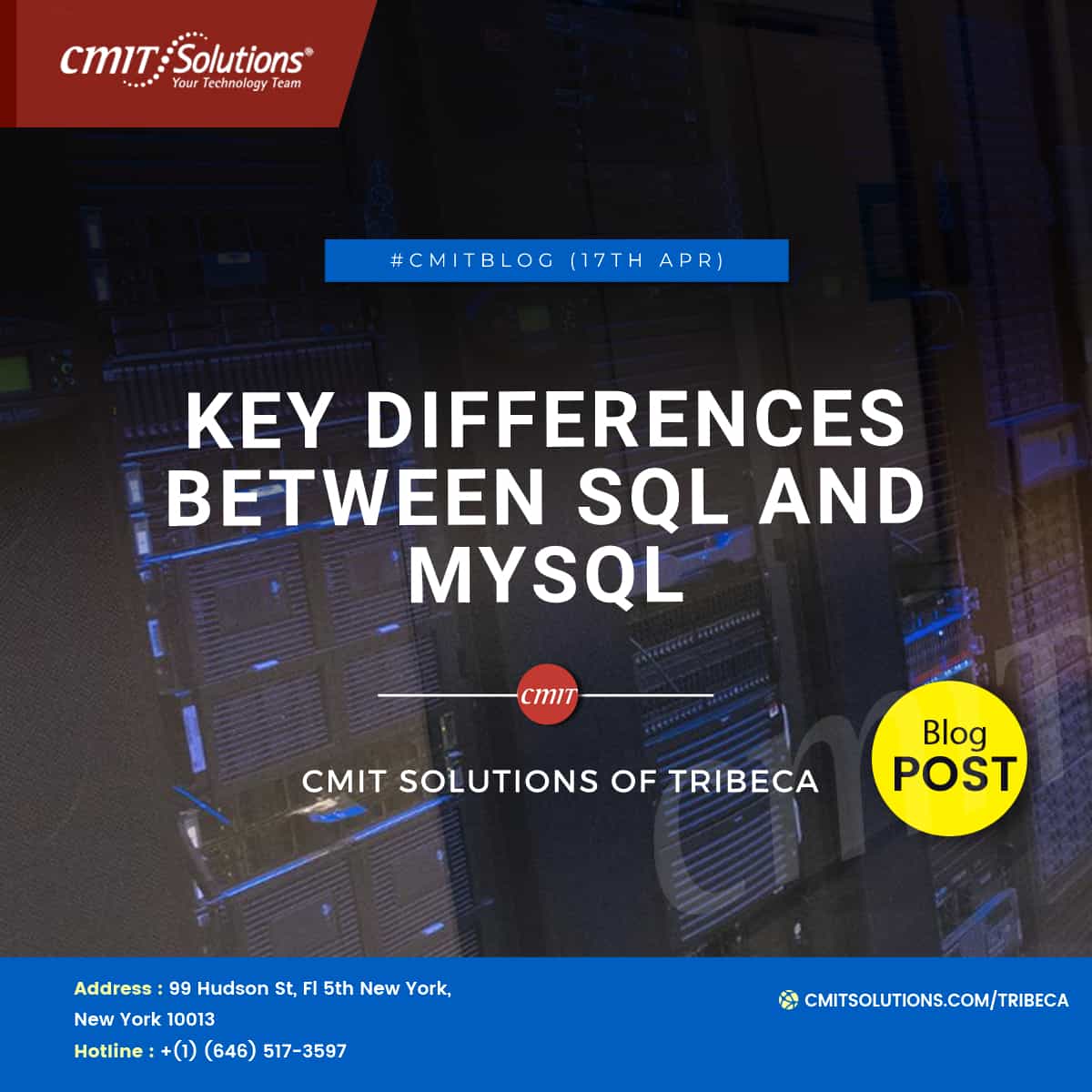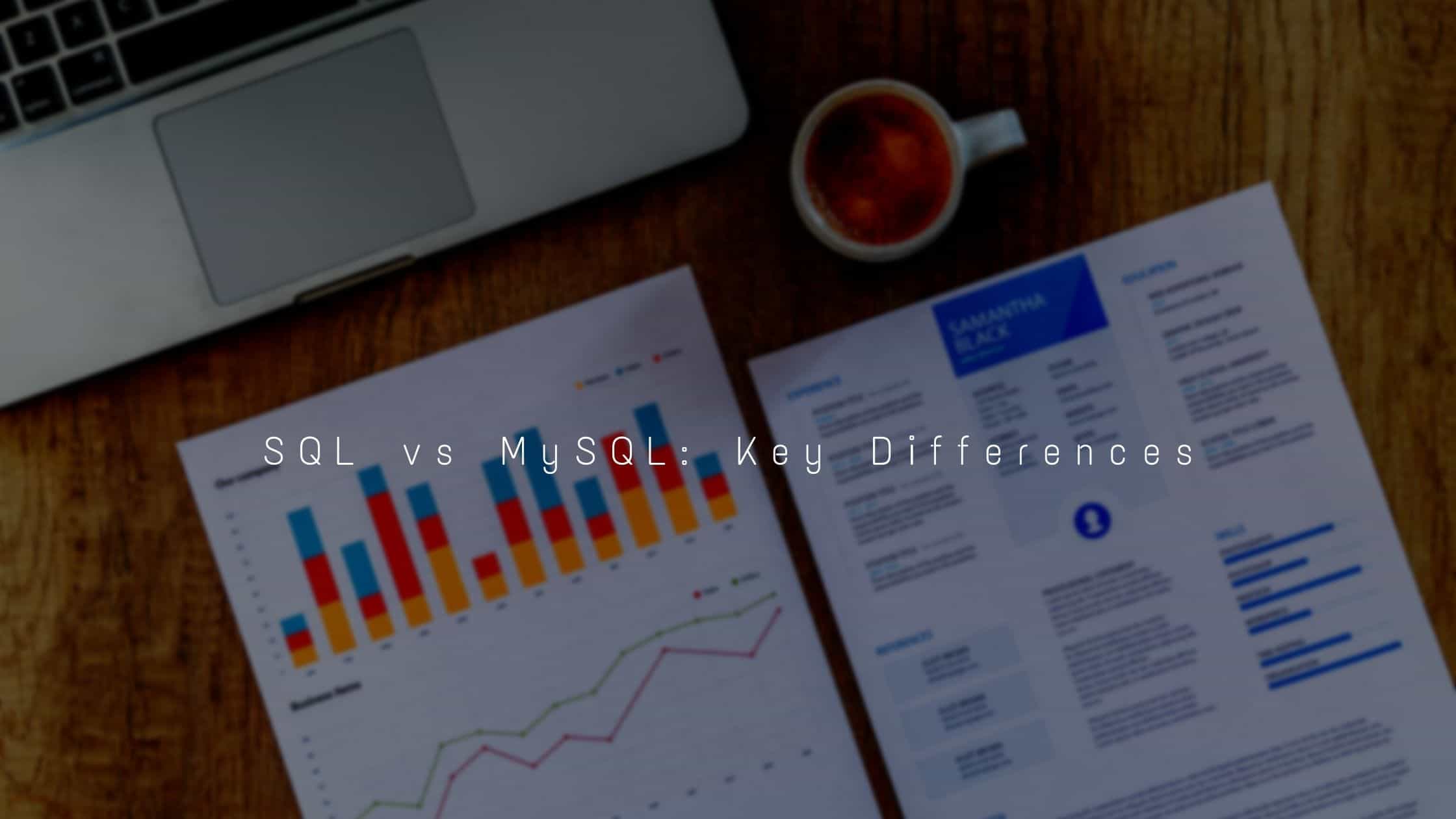If you wish to pursue Big Data, BI, and Business Analytics domains, you will definitely encounter SQL and MySQL.
What is SQL?
In simple terms, SQL or Structured Query Language is the standard language used to store and manage data in RDBMS. With SQL, users can add, access, retrieve, update, and delete data in databases and tables. With SQL, a database can be queried in several ways using statements such as English. SQL is managed, hosted, stored, and provided by Microsoft and is used by MySQL, SQL Server, Oracle, MS Access, and Informix as their standard data languages.
One of the key features of using SQL is that with a single command, one can restore multiple records to a database.
What is MySQL?
MySQL is an open source RDBMS run by Oracle that performs specific tasks / functions and manages data information on SQL commands. It is written in C and C ++ and supports major platforms, such as Windows, UNIX, Linux, and MacOS X. It could be installed on a desktop or a server.
MySQL provides the ability to tailor source code to specific needs and provides multiple user access to databases. Awesome, fast, and reliable, and provides an easy way to start a database of low memory / disk / CPU. It is one of the main features of LAMP (Linux, Apache, MySQL, and PHP), which is a stack of open source web-service.
SQL vs MySQL: Key Differences
- Definition of SQL vs MySQL: SQL is the language of the query specific to a particular domain, and MySQL is an RDBMS that uses SQL to retrieve data from its database.
- SQL vs MySQL Performance: With SQL, one can perform tasks to retrieve and use the data stored in the database. MySQL stores existing data in separate tables in an orderly manner.
- SQL vs MySQL Functions: SQL is used to record information queries, while MySQL facilitates data storage, conversion, and tabular management.
- SQL vs MySQL Format & Syntax: SQL follows a standard format where the basic syntax and commands stay the same, wheras MySQL is constantly updated.
- SQL vs MySQL support: Apache Spark SQL connector does not support Microsoft support. MySQL, however, comes with the MySQL bench as an integrated tool that assists with building and building information.
- Final SQL and MySQL Engine: While SQL supports a single storage engine, MySQL can support multiple endpoint and connecting search engines that make them flexible.
- SQL vs MySQL Server and Database: The server remains independent of the database in SQL, which means you can perform other tasks on the site during the data backup. However, in the case of MySQL, this is not possible as the server is blocking the database. This minimizes data corruption when switching from one version of MySQL to another.
- SQL vs MySQL Data Security: SQL Server offers more data security than MySQL Server. In SQL, external processes or third-party applications cannot access or decrypt data directly. While in MySQL, data files can be easily manipulated or converted using binaries during operation.
- SQL vs MySQL Community Support: SQL, not that is an open source language, does not come with public support. Microsoft SQL Server support is the end of the system. MySQL, on the other hand, offers rich and strong community support because it is an open source platform.
In conclusion, the comparison of SQL and MySQL cannot be controversial, but simply two different data management tools that meet the needs of related data.






